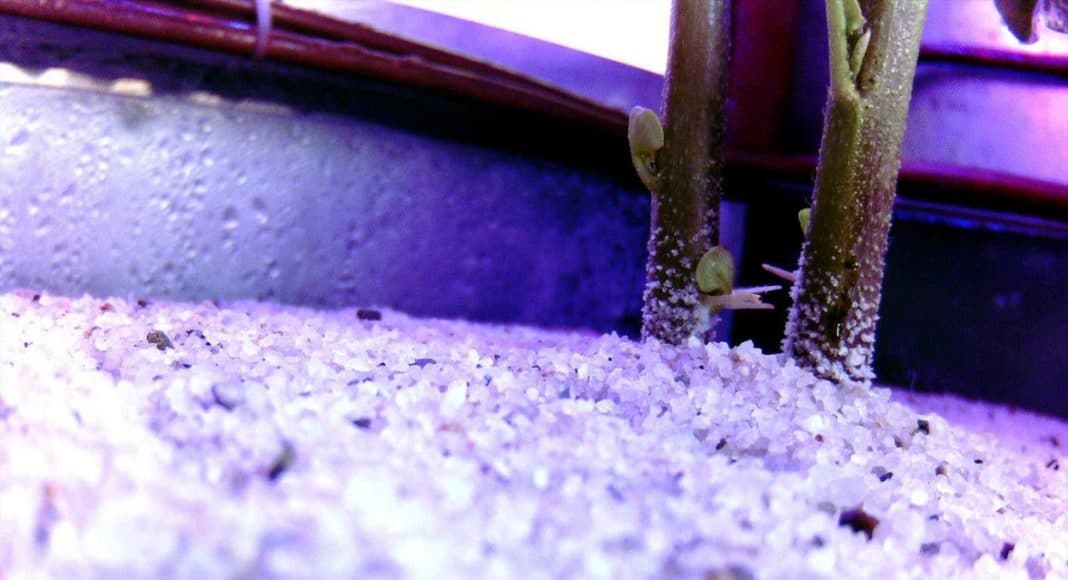The International Potato Center (CIP) in Peru has successfully grown potatoes in a hermetically-sealed orbital environment that simulates conditions on Mars, indicating that it is possible to repeat the events of the 2015 film The Martian.
The Phase Two effort of CIP’s proof of concept experiment to grow potatoes in simulated Martian conditions began on Feb. 14, 2016 when a tuber was planted in a specially constructed CubeSat contained environment built by engineers from University of Engineering and Technology (UTEC) in Lima, based upon designs and advice provided by the National Aeronautics and Space Administration in Ames Research Center (NASA ARC), California.
The Potatoes on Mars project was conceived by CIP to both understand how potatoes might grow in Mars conditions and also to determine how they survive in extreme conditions that are similar to what parts of the world are experiencing.
“Growing crops under Mars-like conditions is an important phase of this experiment,” says Julio Valdivia-Silva, a research associate with the SETI Institute who has worked at NASA’s Ames Research Center (NASA ARC) and now works at UTEC in Lima. “If the crops can tolerate the extreme conditions that we are exposing them to in our CubeSat, they have a good chance to grow on Mars. We will do several rounds of experiments to find out which potato varieties do best. We want to know what the minimum conditions are that a potato needs to survive.”
The CubeSat houses a container holding soil and the tuber. Inside this hermetically sealed environment, the CubeSat delivers nutrient rich water, controls the temperature for Mars day and night conditions, and mimics Mars air pressure, oxygen and carbon dioxide levels. Sensors constantly monitor these conditions and live-streaming cameras record the soil in anticipation of the potato sprouting. Live streams of the experiment can be viewed at potatoes.space/mars.
According to CIP potato breeder Walter Amoros, one advantage is the potato’s genetic capacity for adaptation to extreme environments. CIP has tapped into that capacity by breeding potato clones that tolerate conditions such as soil salinity and drought, in order to help smallholder farmers grow food in marginal areas that could grow harsher under climate change.
In 2016, CIP brought Mars analog soil from the Pampas de La Joya desert in Southern Peru to its experimental station in La Molina, Lima. There, CIP was able to show proof that potatoes could grow in this dry, salty soil with some help from fertilized Earth soil for both nutrition and structure.
“We have been looking at the very dry soils found in the southern Peruvian desert. These are the most Mars-like soils found on Earth,” says Chris McKay of NASA ARC. “This [research] could have a direct technological benefit on Earth and a direct biological benefit on Earth.”
From the initial experiment, CIP scientists concluded future Mars missions that hope to grow potatoes will have to prepare soil with a loose structure and nutrients to allow the tubers to obtain enough air and water to allow it to tuberize.
“It was a pleasant surprise to see that potatoes we’ve bred to tolerate abiotic stress were able to produce tubers in this soil,” Amoros said. He added that one of the best performing varieties was a very salt-tolerant one from the CIP breeding program for adaptation to subtropical lowlands with tolerance to abiotic stress. This variety was recently released as a variety in Bangladesh for cultivation in coastal areas with high soil salinity.
Amoros noted that whatever their implications for Mars missions, the experiments have already provided good news about potato’s potential for helping people survive in extreme environments on Earth.
“The results indicate that our efforts to breed varieties with high potential for strengthening food security in areas that are affected, or will be affected by climate change, are working,” he said.
Related articles:











